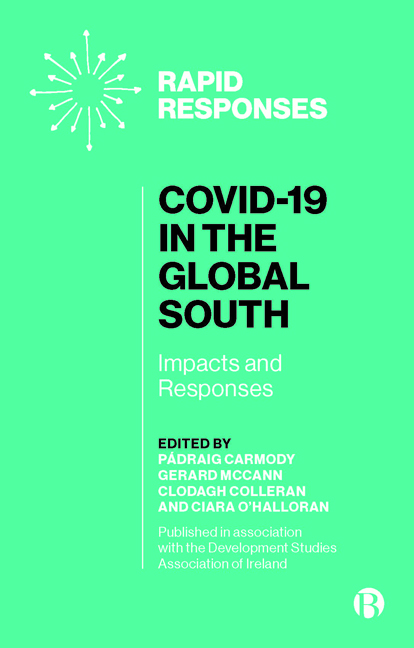5 - Prisons in a Pandemic: The Malawi Experience
Published online by Cambridge University Press: 23 March 2021
Summary
Worldwide, there are currently 11 million people in prisons (Walmsley, 2018). In mid-July 2020, the advocacy body Penal Reform International released a report indicating that since the global outbreak of COVID-19, over 100,000 prisoners had been infected in 88 countries. More than 1,500 prisoners in 36 countries had died due to COVID-19. The day this report was released, Malawi confirmed its first case of a prison officer testing positive for the virus, and the following day its first prisoner tested positive some 600 kilometres away.
In Malawi, one of the world's poorest countries, over 14,000 people are in custody, with prisons operating at 260 per cent capacity (Prison Inspectorate of Malawi, 2019). This means prisoners sleeping side by side on the ground. It means walking past a small police cell and seeing more bodies than the eye can immediately comprehend. Then there is poor ventilation, limited access to adequate nutrition and the lack of basic hygiene facilities. This means no access to running water, no flushing toilets and relying on visitors for meals. Before the outbreak of COVID-19, you would be hardpressed to find a bucket of water and soap available to the prisoners. In other words, Malawi's prisons are the perfect incubator for COVID-19.
As with any prison population, there are people with acute and chronic illnesses, pregnant women and elderly prisoners, making them especially susceptible to the virus. In the context of Malawi, 61 is the average life expectancy for men, almost 10 per cent of the adult population have HIV, rates of tuberculosis are especially high among people with HIV, and these rates are higher in custody than the general population (WHO, 2019). Then there is the healthcare system, reported in April 2020 to have only 25 intensive care beds and seven ventilators in a country with a population of over 18 million people (Vidal, 2020). It is no surprise that Malawi has been classified as one of the top ten most vulnerable countries in Africa to respond to COVID-19 (Surgo Foundation, 2020).
The problem of overcrowding in Malawi's prisons is not new. Back in 2004, the Malawi Prison Inspectorate, which includes a High Court judge, the Ombudsman, the Commissioner of Prisons and a Chief Resident Magistrate, released a report noting that congestion was the most serious problem facing the prisons.
- Type
- Chapter
- Information
- COVID-19 in the Global SouthImpacts and Responses, pp. 51 - 62Publisher: Bristol University PressPrint publication year: 2020



